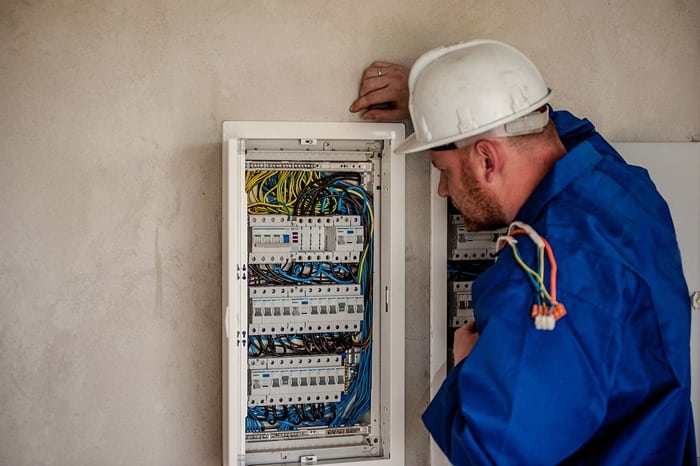
Industrial Electrician Requirements: Education, Job and Certification
This post provides complete information on the requirements you will be expected to meet if you are interested in pursuing the industrial electrician career.
It presents the educational, job, and certification requirements you will be expected to complete in starting and building a successful career as an industrial electrician.
Please, continue reading:
Industrial Electrician Requirements For Career Success
If you are seeking to become an industrial electrician, here are major requirements you should prepare to meet in the course of your career:
- Industrial Electrician Educational Requirements
No formal degree is widely recognized or required to become an Industrial Electrician.
Most electricians learn through apprenticeship while some attend technical school.
Some states require electricians to be licensed in order to operate as one.
For more vital information on how to kick start your career as an industrial electrician, below are educational programs necessarily available to acquire:
High School diploma or equivalent: This program teaches candidates basic knowledge in science and algebra so as to equip students for the main coursework.
Admission requirements for High School diploma:
The individual must have completed High School educational program and must have passed the required courses like Physics, Chemistry and Mathematics.
Associate’s degree: Acquiring an Associate’s degree in Electrical or Mechanical Technology and Electrical Construction Technology is an ideal option for aspiring industrial electricians.
Notwithstanding the fact that there is no formal degree for this career, employers will prefer to hire applicants with Associate degree than a Diploma.
Associate’s degree program lasts for two years.
Admission requirements for Associate’s degree:
To enlist in this program, you must have graduated from a High School with a diploma and excelled in the required courses.
- Industrial Electricians Job Requirements
Industries, contractor associations, and sponsor apprenticeship programs specify the job requirements an aspiring industrial electrician must possess.
The basic qualifications majorly required to work as an industrial electrician include:
- High School Diploma or GED
- In rear cases, candidates must have an Associate’s degree in a related field
- Journeyman experience or the completion of an apprenticeship program
- Knowledge of electrical systems and ability to use hand tools and industrial equipment
- Understanding of national, state, and local electrical codes and regulations
- Excellent oral and written communication skills
- Ability to read schematics, blueprints, and other technical documents and drawings
- Willingness to perform labor intensive tasks, such as lifting heavy objects, climbing ladders, and crawling.
- Industrial Electrician Certification Requirements
Most states require electricians to pass a test before they are certified.
Some accredited certification bodies offer various programs for industrial electricians so as to certify them for the position.
The various certificate program offered by these bodies are:
- Certified Electrical Inspector (CEI) Certification Program: This certification program is designed to promote professionalism within the electrical inspector field of practice through a widely accepted, respected, and professional certification that provides the aspiring electrician with quality academic training.
Requirements: A High School or GED or Associate degree program in Electrical Construction Technology is required, or a completion of Registered Electrical Apprenticeship Training Program.
- Certified Electrical Safety Worker (CESW): This accredited program is designed by NFPA.
CESW is a professional certificate for electricians and other hands-on electrical workers to have a proper working knowledge of the practices and concepts in the field.
Requirements: A computer-based examination and a set of re-certification requirements that must be completed within a three-year time period following the initial certification.
- Industrial Electricity Safety Inspector: This certification offers knowledge to the candidate on various calculations, such as voltage drop, neutral load, and feeder and branch circuit loads.
This certification is a means to qualify electrical inspectors to identify electrical hazards or safety violations in industrial facilities.
Requirements: This certification requires completion of National Electrical Code and Electrical Safety for Inspectors courses within an 18 month period.
- Certified Control Systems Technician (CCST): This certificate is issued by ISA. The CCST program is a third-party confirmation of a technician’s skills by ISA.
Individuals with the Certified Control Systems Technician certification are skilled in mechanical, pneumatic, and electronic instrumentation.
They can decipher the process control loops and process control systems and also computer based systems.
Requirements: A registered apprenticeship in an instrumentation, electronics, electrical program, if applicable.
Completion of an academic degree like Associate’s degree in a related technology area is also a requirement for CCST.
Industrial Electrician Responsibilities
Industrial Electricians are in charge of the installation, repair, and maintenance of electrical structures and systems in factories or industries.
They check old and existing equipment for malfunctions and determine if they need to be upgraded or replaced.
They test switches, regulators, and other parts of industrial electrical components.
Industrial Electricians install, maintain, and repair electrical equipment and parts, such as control panels and electrical circuits.
This position requires intensive knowledge of electrical systems as well as electrical safety codes and regulations so as to avoid electrocution and wrong wiring connection issues.
They must be professional in technical and mechanically system operation.
The following are the distinguishing responsibilities of an industrial electrician:
- They inspect, install, repair, and service industrial electrical systems
- Perform electrical work on industrial construction sites
- They work with high voltage systems
- They perform electrician functions with pumps, environmental regulating systems, and industrial lighting systems
- Perform electrical work with heavy duty machinery
- Perform electrical work with industrial communications, motor, and generator systems
- Responsible for maintaining the wiring of different electrical equipment and gadgets
- Assemble or uninstall electrical equipment
- Test the already installed electrical devices in order to check their quality and condition.
- You can learn more about what they do by checking out industrial electrician job description.
Conclusion
If you are interested in starting and building a successful industrial electrician career, this post will be helpful to you in increasing your knowledge of the educational, job, and certification requirements you will have to fulfill.




